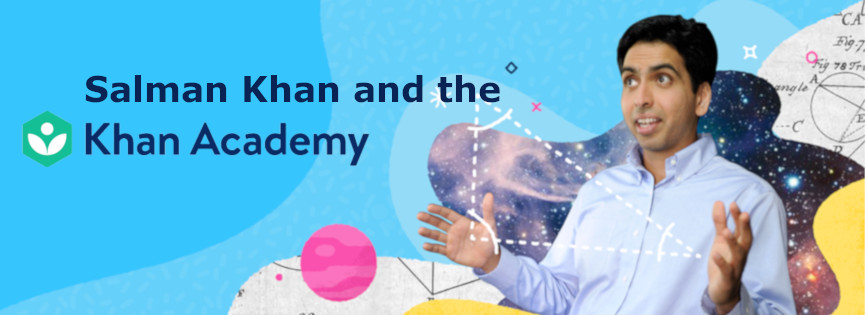The Princess of Asturias Foundation
Sección de idiomas
Fin de la sección de idiomas
Sección de utilidades
Fin de la sección de utilidades
- The Foundation
- HM The King
- HRH The Princess of Asturias
- 2023 Special
- Princess of Asturias Awards
- Area of Communication and Media
- Music Department
- Exemplary Town of Asturias Award
- 2012 Special
- 2013 Special
- 2014 Special
- 2015 Special
- 2016 Special
- 2017 Special
- 2018 Special
- 2019 Special
- 2020 Special
- 2021 Special
- 2022 Special
-
Important: COVID-19
-
Terms of Use
You are in:
Laureates
Start of main content
Salman Khan and the Khan Academy
Princess of Asturias Award for International Cooperation 2019

Salman Khan
See more
Son of an Indian mother and Bangladeshi father, Salman Amin Khan was born on 11th October 1976 in New Orleans (Louisiana, USA) , where he grew up. Teacher and a graduate in Mathematics, Engineering and Computer Science from the Massachusetts Institute of Technology (MIT), Khan earned his Master’s degree in Business Administration from Harvard University, after which he began working as a financial analyst. In 2004, Salman Khan offered to help his cousin Nadia with her Maths schoolwork. Due to living in different cities, they communicated by telephone with the support of some basic computer tools. As this formula yielded quite positive results, within a short time, Khan was remotely monitoring the progress of several relatives with similar problems at school. In 2006, he began publishing videos on the YouTube platform explaining his lessons so that everyone could view them on their own. These videos began to be seen by more and more people, who encouraged him to continue publishing new lessons. So, in 2008 he created the Khan Academy, a non-profit organization to which he has devoted himself full time since 2009, when he presented his resignation from the investment fund for which he was then working.
Salman Khan’s academic preparation and his teaching capacity quickly led him to discover his interest in the field of education. The Khan Academy is the consolidation of an innovative, transformative format that offers free educational material on the Internet for all ages, from primary through to high school. Although the content was initially aimed at students, it has gradually become a very useful tool for teachers who wish to complement their classroom lessons with additional material. Oriented towards mathematics in its origins, the educational platform has gradually opened up to new fields including science, history and grammar.
Distinguished with the 2014 Heinz Award for innovative contributions in
the category of the Human Condition, Salman Khan has managed both to
draw the attention and seek the support of prestigious personalities and
institutions such as Bill Gates, Google (2008 Prince of Asturias Award
for Communication and Humanities), Carlos Slim and Disney, among others,
who have seen his project as a way to support free universal education.
Khan Academy
See more
The Khan Academy is currently found in more than 190 countries, with nearly sixty million registered users. It also has around 20 000 videos available that have been viewed more than 1400 million times. Complementing the function of the videos by offering the possibility of monitoring individual student progress, doing practice exercises or providing additional tools to teachers, the Academy’s web platform is available in five languages in addition to English: Spanish, French, Portuguese, Turkish and Bengali, and its videos have been translated into 36 languages. The Khan Academy also offers the possibility of preparing for general college and medical college admission tests (SAT and MCAT, respectively). In 2017, it became an official partner for the preparation of American College Board tests and, since 2018, it also offers preparation for law school admission tests (LSAT). The Academy likewise promotes the concept of the ‘flipped classroom’, which seeks to ‘flip’ the traditional teaching method, encouraging students to prepare theory at home so as to allocate class time to the more practical part, working directly with the teacher. Salman Khan’s commitment is thus to the universality of education and the empowerment of people from an early age. His motto is: “You only have to know one thing: you can learn anything.”
End of main content
Sección de utilidades
Fin de la sección de utilidades
- Legal document Legal document (Access key 8)
- | Privacy policy Privacy policy (Access key )
- | Social networks ???en.portal.pie.menu107.title???
- | Cookies ???en.portal.pie.menu110.title???
- | Site map Site Map (Access key 3)
- | Contact Contact (Access key )
- | XHTML 1.0
- | CSS 2.1
- | WAI 'AA
© Copyright 2024. FUNDACIÓN PRINCESA DE ASTURIAS
 MINUTES OF THE JURY
MINUTES OF THE JURY


